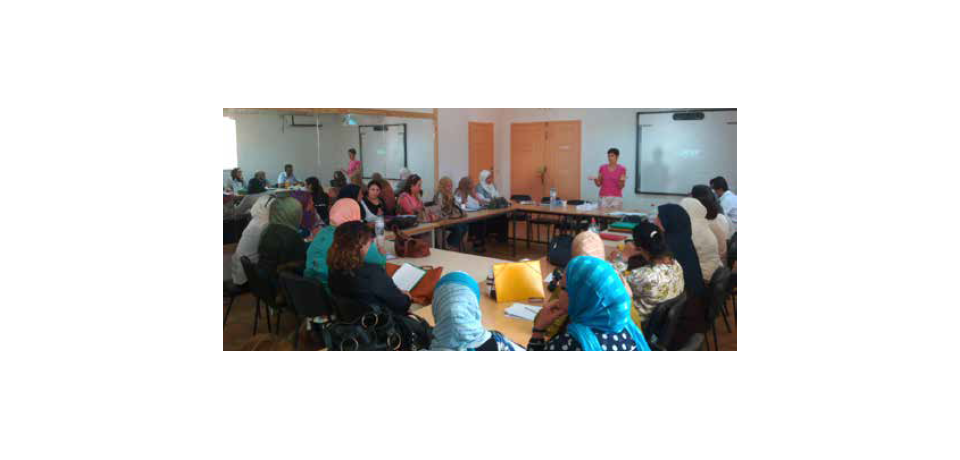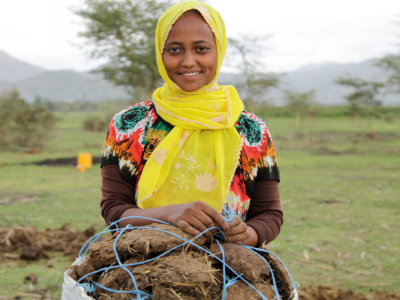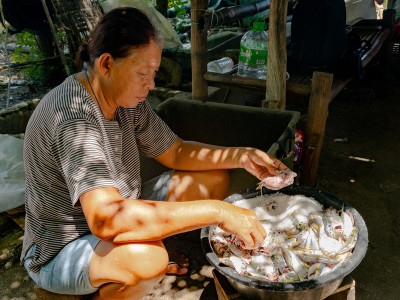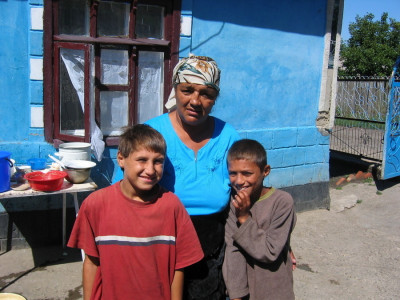Health for all. Shared governance of a social health system between Italy and Tunisia
Related Sustainable Development Goals and Global Compact for Migration Objectives
Summary
This project comes from the JMDI Phase II, a UN Joint Migration and Development Initiative, run in cooperation by IOM, UNDP, ILO, UN Women, UNFPA, UNITAR which took place from 2012 to 2017 worked to improve the socio-sanitary conditions in the Kasserine region, through the strengthening of the partnership between public institutions and civil society active in the Tunisian and Italian social and health systems.
The governorate of Kasserine, located in the centre-west of the country, is mostly a rural area with 61% of the population living outside a city. The region remains very poor, because of a high incidence of unemployment. The population often have very low incomes that do not allow them to access social services, particularly the case for women and children. Also, the region is marked by a very limited health infrastructure that is unable to meet the needs of the entire population: there is one doctor per 3,000 habitants and 1.25 medicals bed per 1,000 habitants.
Overall, the project improved the socio-sanitary conditions in the region of Kasserine, through the strengthening of partnerships between public institutions, civil society and diaspora within the context of a decentralised cooperation relationship with the Region of Tuscany in Italy. Specifically, the project targeted mother and children health with the aim to provide better services, follow up and equipment to lower mortality rates in the region.
Key objective
The overall objective of this project was to improve the socio-sanitary conditions in the Kasserine region, through the strengthening of the partnership between public institutions and civil society active in the Tunisian and Italian social and health systems.
Main activities
The main activities of the project involved:
- Knowledge-sharing visits, organised by the project’s private partners in Tuscany, which took place in Kasserine in order to promote intercultural dialogue and exchanges of expertise in the field of public health between the two regions.
- Awareness campaigns were conducted for Tunisian migrants in Tuscany and for the Kasserine rural population on issues related to maternal and child health to promote a transnational dialogue.
- Facilitation of the relationship with an Italian hospital to provide training to develop and strengthen the capacities of the Kasserine region social/health system.
Key successes or innovative factors, good practices and lessons learned (if available)
Key successes of the project outlined that:
- Decentralised cooperation partnerships facilitate the inclusion of migrants and the incorporation of migration and displacement issues into local development processes in territories of origin and destination.
- Establishing mechanisms and spaces for dialogue between local authorities
guarantees their full involvement and ownership of the project,
as well as the sustainability of the approach. - Data on the composition of the diaspora should be collected before the project is formulated, in order to integrate civil society into the partnership.
- Raising the awareness of elected officials and local public servants on
the practices of decentralised cooperation, and building their capacity,
ensures that better attention is placed on migration and development issues.
Beneficiaries
This initiative has directly benefited mothers and children in the region of Kasserine and foreseen an increase in 20% of women’s access to quality health facilities.



